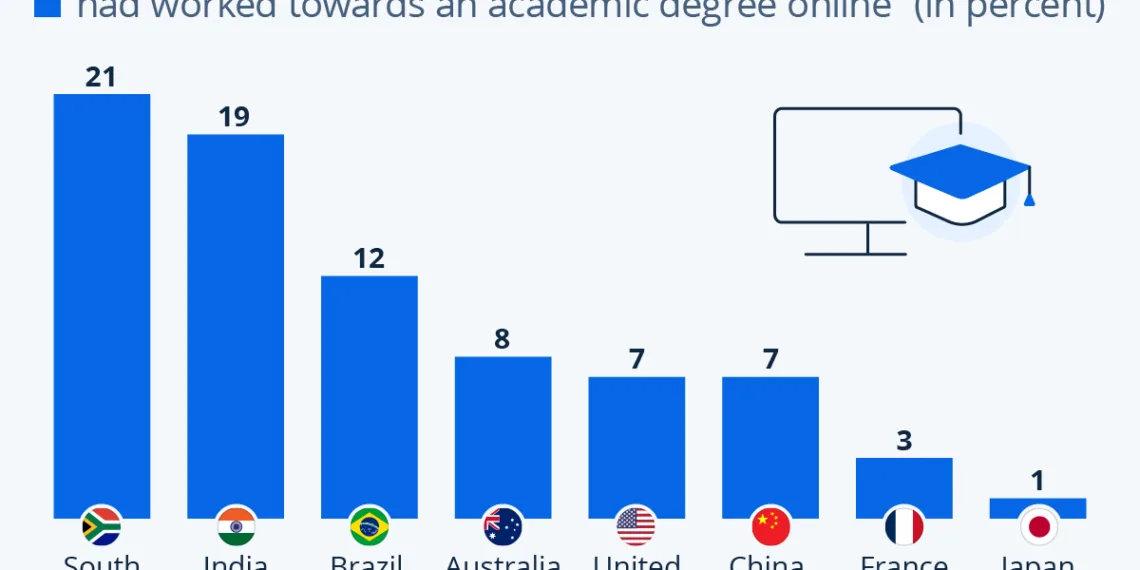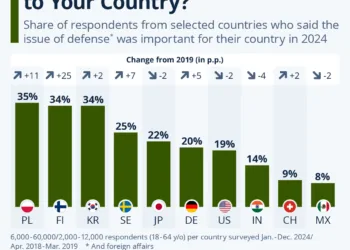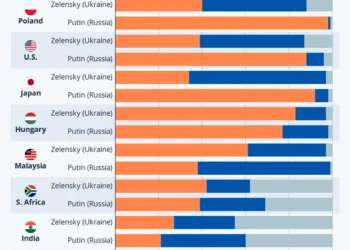The Rise of Online Degree Pursuit in Emerging Economies
In a rapidly changing world, education is innovation’s cornerstone. Recent insights shared by Statista Consumer Insights have unveiled intriguing trends regarding online education, particularly among emerging economies. This blog delves into the details stemming from a survey conducted across 21 countries, showcasing the clear preference for online degrees in countries like South Africa, India, and Brazil.
Survey Insights: Emerging Economies Leading the Way
The survey results highlight a significant inclination towards online degree programs in various emerging markets. Here’s a detailed breakdown of the findings:
-
South Africa: Leading the pack, 21% of respondents indicated that they engaged in online degree coursework within the last year. This preference could be attributed to several local factors, including the need for flexible learning solutions amid a challenging economic landscape.
ADVERTISEMENT -
India: Hot on South Africa’s heels, 19% of Indian respondents reported pursuing their degrees online. India’s diverse demographic, along with its expanding internet accessibility, enables many students to explore higher education options that cater specifically to their needs.
- Brazil: Some 12% of Brazilians also engaged in online academic endeavors. Brazil’s educational system faces constraints in terms of infrastructure and access to quality education, fueling the demand for alternatives like online learning.
Global Comparisons: A Broader Perspective
While emerging economies appear to embrace online higher education more fervently, the interest isn’t exclusive to these nations.
-
Australia: In a developed context, Australia reported that 8% of its respondents turned to online degrees. This suggests that even in countries with robust educational systems, online learning is gaining traction.
ADVERTISEMENT -
United States: The U.S. stands closely behind Australia, with 7% of individuals undertaking online degree programs. The convenience of online education has been a boon for working professionals in a competitive job market.
- China: Mirroring the U.S. statistics, a 7% engagement in online degrees indicates a nascent interest in alternative learning pathways.
The Factors Influencing Online Education Adoption
The surge in online education among individuals in emerging economies raises pertinent questions about the factors driving this trend. A few key influences can be identified:
Limited Access to Local Educational Institutions
In many emerging markets, traditional higher education institutions may not be readily accessible. A lack of universities, colleges, and specialized programs within a reasonable geographical proximity often pushes students to seek out online alternatives. Online education provides an avenue that transcends these physical barriers, making higher education accessible to a more extensive population.
Fragmented Educational Landscape
The higher education scene in emerging economies is often characterized by numerous smaller institutions offering a range of programs, which can be both a blessing and a curse. This fragmentation leads to inconsistencies in quality and availability of educational opportunities. Online programs tend to offer standardized courses that can be accessed by students across various regions, providing a more reliable and coherent educational experience.
The Need for Flexibility
With many individuals balancing work and study, the flexibility of online education becomes a major selling point. Non-traditional students or those returning to their studies find that online degree programs allow them to maintain their professional commitments while furthering their education. The asynchronous nature of many online courses lets students learn at their own pace, removing barriers that may have previously hindered their academic ambitions.
The Appeal of Online Degrees for Non-Traditional Students
Non-traditional students, including older individuals or those with professional responsibilities, are increasingly recognizing the benefits of online learning. The chance to earn a degree while continuing to work is particularly appealing.
Career Advancement Opportunities
Pursuing an online degree can significantly enhance career opportunities. Individuals may find themselves better positioned for promotions or new job prospects after attaining their qualifications, directly impacting their earning potential.
Enhanced Learning Experience
Online degrees are evolving with technology, offering interactive platforms, resources, and networking opportunities that can rival traditional educational settings. This modern approach caters to diverse learning styles and can engage students more effectively.
Conclusion
The evolving landscape of education is marked by the shift of traditional learning to online platforms, particularly in emerging economies. As the statistics reflect, the inclination for online degrees is not merely a trend but a response to various socio-economic factors that shape students’ choices today. As these trends continue to unfold, we can expect to see significant changes in the global educational framework, emphasizing the importance of adapting to the needs of learners worldwide.










